Future Faculty Programs
Center for the Integration of Research, Teaching, and Learning (CIRTL)
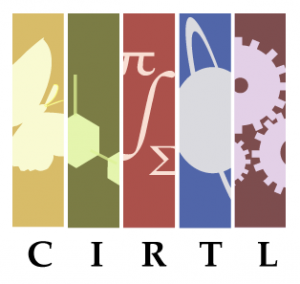 The Center for the Integration of Research, Teaching, and Learning (CIRTL) is an NSF Center for Learning and Teaching in higher education. CIRTL uses graduate education as the leverage point to develop a national STEM faculty committed to implementing and advancing effective teaching practices for diverse student audiences as part of successful professional careers. The goal of CIRTL is to improve the STEM learning of all students at every college and university, and thereby to increase the diversity in STEM fields and the STEM literacy of the nation.
The Center for the Integration of Research, Teaching, and Learning (CIRTL) is an NSF Center for Learning and Teaching in higher education. CIRTL uses graduate education as the leverage point to develop a national STEM faculty committed to implementing and advancing effective teaching practices for diverse student audiences as part of successful professional careers. The goal of CIRTL is to improve the STEM learning of all students at every college and university, and thereby to increase the diversity in STEM fields and the STEM literacy of the nation.
To prepare the future STEM faculty of the nation, CIRTL must influence graduate-through-faculty preparation in teaching and learning at a significant number of research universities. Building on the CIRTL Core ideas, we propose to achieve this goal through a learning community of diverse research universities mutually engaged in teaching-as-research activities.
Established in fall 2006, the CIRTL Network was comprised of Howard University, Michigan State University, Texas A&M University, University of Colorado at Boulder, University of Wisconsin-Madison, and Vanderbilt University. After a substantial expansion in 2016, the Network now includes 46 research universities across the nation (including UCLA). The diversity of these institutions—private/public; large/moderate size; majority-/minority-serving; geographic location—is by design aligned with CIRTL’s mission.
Institutional Research and Academic Career Development Awards (IRACDA)
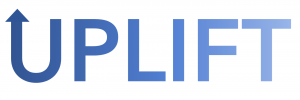 UPLIFT is the IRACDA Program at UCLA and supports postdoctoral scholars in the biological sciences who have a demonstrated interest in teaching, research, and supporting diversity in the STEM fields. The IRACDA program combines a traditional mentored postdoctoral research experience with an opportunity to develop academic skills, including teaching, through workshops and mentored teaching assignments at a partner institution. The program is expected to facilitate the progress of postdoctoral candidates toward research and teaching careers in academia. Other goals are to provide a resource to motivate the next generation of scientists at partner institutions and to promote linkages between RIIs and partner institutions that can lead to further collaborations in research and teaching. IRACDA fellows receive training and gain experience in pedagogy, teaching, and mentoring at Cal State, Los Angeles. The program is sponsored through the Institutional Research and Academic Career Development Award (IRACDA), supported by the division of NIGMS at NIH.
UPLIFT is the IRACDA Program at UCLA and supports postdoctoral scholars in the biological sciences who have a demonstrated interest in teaching, research, and supporting diversity in the STEM fields. The IRACDA program combines a traditional mentored postdoctoral research experience with an opportunity to develop academic skills, including teaching, through workshops and mentored teaching assignments at a partner institution. The program is expected to facilitate the progress of postdoctoral candidates toward research and teaching careers in academia. Other goals are to provide a resource to motivate the next generation of scientists at partner institutions and to promote linkages between RIIs and partner institutions that can lead to further collaborations in research and teaching. IRACDA fellows receive training and gain experience in pedagogy, teaching, and mentoring at Cal State, Los Angeles. The program is sponsored through the Institutional Research and Academic Career Development Award (IRACDA), supported by the division of NIGMS at NIH.
Educational Development Academy for TACs
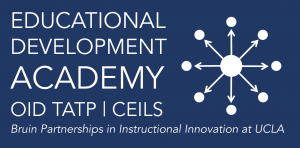 The Educational Development Academy for Teaching Assistant Consultants is a program designed in partnership between UCLA’s Center for Education Innovation and Learning in the Sciences (CEILS) and the Office of Instructional Development’s TA Training Program. It is designed for graduate students who will serve as the Teaching Assistant Consultant (TAC) for their respective departments. This 2-day experiences offered over the summer provides TACs with the pedagogical knowledge, instructional methodologies, observational and feedback strategies, and awareness of campus resources needed to effectively train new TAs – since the TACs will teach their deparment’s TAs in the 495 courses.
The Educational Development Academy for Teaching Assistant Consultants is a program designed in partnership between UCLA’s Center for Education Innovation and Learning in the Sciences (CEILS) and the Office of Instructional Development’s TA Training Program. It is designed for graduate students who will serve as the Teaching Assistant Consultant (TAC) for their respective departments. This 2-day experiences offered over the summer provides TACs with the pedagogical knowledge, instructional methodologies, observational and feedback strategies, and awareness of campus resources needed to effectively train new TAs – since the TACs will teach their deparment’s TAs in the 495 courses.
Opportunities through the Southern California Regional Collaborative

Visit our website to learn more about an exciting initiative called the Southern California Regional Collaborative. Through the generous support of the National Science Foundation, UCLA has been involved in a 2-year long pilot in collaboration with the Center for the Integration of Research, Teaching, and Learning (CIRTL), which sought to lay the foundation for both a national and regionally-focused effort to improve STEM education. We are excited to share that this effort will continue through our participation in one of the first NSF INCLUDES ALLIANCE awards.
The Southern California Regional Collaborative is a regional network of 2- and 4- year institutions, working together towards improving overall outcomes in STEM higher education, and in particular for students and faculty from underrepresented groups.
We work with graduate students and other potential “future faculty” from groups that are underrepresented in academia to address the need to increase diversity in our regional colleges to better reflect the diversity of our students. These trainees will support teaching efforts, education research initiatives, and curriculum development needs in collaboration with their 2- year internship site. In addition, regional programming such as webinars, symposiums, conferences, panels, and other events supports both current faculty along with future faculty. This will be coupled with an assessment plan to understand regional needs and assess the impact of our work.
Regional Teaching Fellowships
The EnCorps STEM Teaching Fellowship – alternative pathway to (paid) teaching or volunteer tutoring
The EnCorps STEM Teachers Program Fellowship (www.encorps.org) is a way for science, technology, engineering and math (STEM) professionals to explore if teaching at the middle or high school level might be a potential career pathway. Choose from two programs: transition to teaching or volunteer tutoring. Currently there is a severe shortage of high-quality teachers and enduring gaps in STEM access for high-need students and communities. EnCorps transitions STEM professionals into teaching with opportunities to tutor or guest teach, professional development and training, scholarships for obtaining a teaching credential, and access to our network of schools. Find out more by joining one of our monthly free EnCorps 101 webinars at http://encorps.org/webinar/.
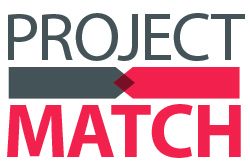
ProjectMATCH – LACCD Internship Program for Teaching in a Community College
The Los Angeles Community College District, comprised of nine area community colleges, offers Project MATCH as a program to prepare and recruit a diverse community college faculty who are sensitive to the needs of the students and community it serves. The goals of the program are to improve the diversity pool of faculty in the District, for our interns to become role models reflecting that diversity in the District, and to better reflect the diversity of the community around the biggest community college district in the United States of America. View website.
Preparing Future Faculty (PFF)
Based on continuing interest and requests from graduate students and post-docs for more information about careers in the full spectrum of American higher education, the Preparing Future Faculty program will be offered again this Fall, under the course number CHEM 272G.
All are welcome. Grad students may sign up for or audit the course; post-docs are welcome to audit.
View the syllabus for Fall 2017: Preparing Future Faculty Syllabus – Fall 2017
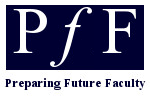
Previously funded by HHMI Award No. 52006944
Contact: Arlene Russell (Chem & Biochem)
Entering Mentoring
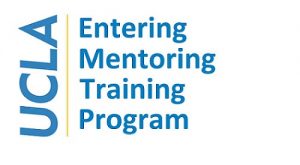
Effective mentoring is critical to the retention of students in STEM fields and has been linked to greater productivity, research independence, and career satisfaction. In general, mentors do not receive any formalized training in mentoring. More specifically, mentors are unaware of specific issues related to mentoring diverse students.
Entering Mentoring Training is an 8 week curriculum based on the model: “Entering Mentoring: A Seminar to Train a New Generation of Scientists,” by J. Handlesman et al. 2009. The seminar targets graduate students and post-doctoral scholars in the sciences and uses a student-centered, interactive approach.
Career Development for Graduate Students
Career Services for Graduate Students and Postdoctoral Scholars:
Handshake is a bridge that connects Graduate students and Postdoctoral scholars to expertise on career preparation. This professional website is a great source to find workshops, events, and all other career development programs across campus.
We encourage you to log in to Handshake to stay informed about upcoming opportunities.
Visit Handshake Help Center for more information.
Workshops and Events
Biology Scholars Program
The Biology Scholars Program offers tools and resources to drive professional faculty into reforming and sustaining new teaching strategies in undergraduate science education.
Bioscience Postdoc Educational Leadership Program
The Office of Postdoctoral Affairs for the Biomedical and Life Sciences is working with the School of Medicine and Departments of Molecular, Cellular, & Integrative Physiology (MCIP) and Molecular & Medical Pharmacology (MMP) to provide opportunities for postdocs to develop leadership skills in educational settings.
Skills to be developed:
- Leading small-group discussions
- Evaluating effectiveness of lecture content and presentation
- Course review and analysis
Bioscience Postdoc Educational Leadership Program has two parts:
Observation
Program postdocs will audit and observe a 3-week block of the graduate course, Molecular Mechanisms in Human Diseases, which covers fundamentals in modern biology, with special emphasis on the implications and relevance to human diseases. This course was chosen for the program because its broad range of bioscience topics matches with a wide range of postdoc research interests and its variety of instructors provides multiple potential instructional role models for participants. Witness firsthand how a course is developed and improved and get the opportunity to observe a variety of UCLA faculty lecturers and discussion leaders. Participants will be assigned a 3-week block of intensive observation and participation during the Winter quarter.
Training
Program postdocs will be provided access to the course development process, using the audited course as an example and have the opportunity to develop their own leadership skills by leading three small-group discussions with graduate students on research proposal writing skills. Training/information meetings will take place just before and after the academic quarter. Course observation will be a 8 hours/week, 3-week commitment.
Participants selected to join the Bioscience Postdoc Educational Leadership Program are required fully participate in the following activities:
- Audit and attend a 3-week block of the course, Molecular Mechanisms of Human Diseases during the appropriate quarter.
- Closely observe all the lectures during the 3-week commitment block, preparing lecture reviews on teaching and lecture style.
- Attend, participate, and review a weekly Faculty-led Literature Discussion for graduate students during their 3-week commitment block.
- Lead a small group discussion with graduate students on effective research proposal writing.
- Attend a pre-quarter training, information and course planning session for program participants.
- Discuss the observations they made during the attended lectures in terms of evaluating lecture style and composition.
- Get permission from their PI/mentor for their potential participation, should they be selected.
Project Kaleidoscope (PKAL)
The PKAL Summer Leadership Institute focuses on engaging early to mid-career STEM faculty to take part in projects geared towards transform STEM education in their classroom, department, and institutions.
Society for the Advancement of Biology Education Research (SABER)
The Society for the Advancement of Biology Education Research (SABER) invites science faculty to learn new strategies to develop improved methods in Biology Education Research. Programs include development of BER training and faculty development programs as well as curriculum development.
- CEILS Journal Club meets weekly to present and discuss research on science education. Journal Club is open to graduate students and post-docs as well as faculty.
- On-campus, off-campus, and online events are announced on our website and through our bi-monthly newsletter. Many of these events are open to graduate students and post-docs.
Need additional information? Send inquiries to media@ceils.ucla.edu and a member of our team will follow-up.
Join the CEILS mailing list! Click on the button below to start receiving our bi-monthly newsletter which includes events, program information, funding opportunities, and job postings for graduate students and post-docs.

